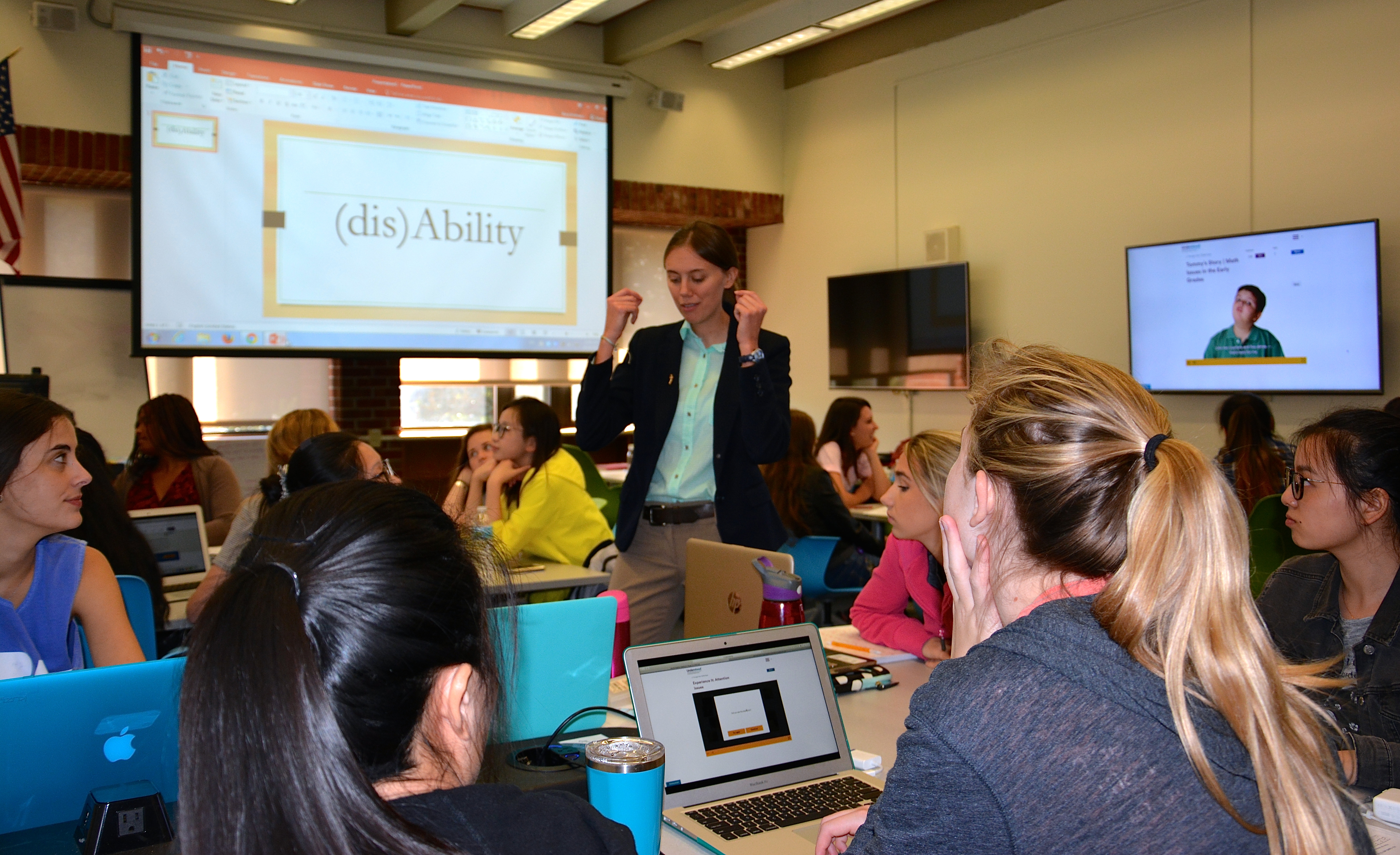While top-to-bottom renovations of UF’s Norman Hall aren’t due to begin until spring of 2017, private donations have allowed the College of Education to upgrade three classrooms in its 82-year-old academic home over the past year.
The latest makeover is immediately evident in Room 2323, where education students and instructors are already reaping the benefits of the new 21st century accoutrements. The transformed “active-learning” classroom couples mobile furniture and innovative teaching methods with modern technology that the teachers-in-training will one day use in their own classrooms.
Thanks to a $15,000 gift to the college from the Robert S. and Mildred M. Baynard Trust, matched by discretionary funds from the dean’s office plus a subsidy from the college’s School of Teaching and Learning, Room 2323 has been reinvigorated with cutting-edge technology and multi-functional classroom furniture.

STL instructor Brittney Beck leads a lesson in her Introduction to Education class held in upgraded Room 2323.
STL Director Ester de Jong said the mobile furniture and new technology fully engages students by encouraging collaborative problem solving.
“The modernized classrooms allow us to engage our pre-service teachers in the kind of instruction that we want them to be using with their students in their future classrooms,” de Jong said.
De Jong added that our students are able to better their education and skills because of contributions from our donors.
“Thanks to the generous gifts by the Baynard Trust and the matching funds by Dean Good, we are now able to provide our students with an active learning environment that models and engages them in the teaching and learning experience of the 21st century,” she said.
In a recent lesson in STL doctoral fellow Brittney Beck’s Introduction to Education course, Room 2323’s new multi-media technology allowed students to simulate the obstacles that schoolchildren with disabilities face in the classroom. Then, the education students could explore how a traditional K-12 setting can be altered to meet the learning needs of students who are “differently abled” (a “person-first” term, which Beck encourages students to use, that emphasizes all of the abilities a student has, rather than what a student is unable to do.)
“The new technology enabled our students to experience the frustration, exhaustion and self-doubt that occurs when a classroom environment is not designed to meet the needs of a students,” Beck said. “This offers vivid insights into the social and emotional dimensions of learning.”
SOURCE: Ester de Jong, 352-273-4227; edejong@coe.ufl.edu
WRITER: Kelsie Ozanne, College of Education; kozanne@ufl.edu
